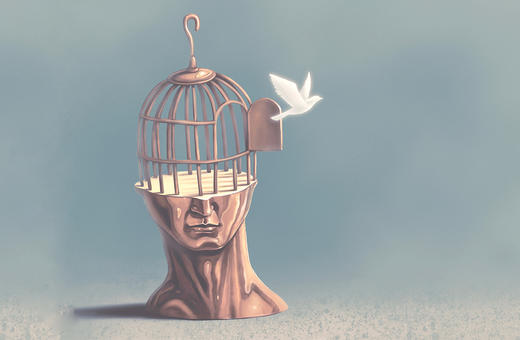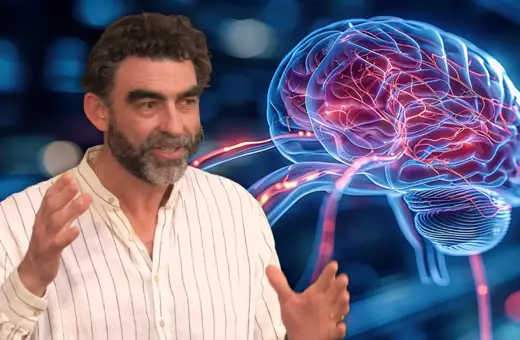Are your thoughts truly your own, or the product of forces beyond your control? In this article, Omari Edwards, Contributing Editor of the IAI, uncovers the arguments behind on the Freedom and Fate debate at this year’s HowTheLightGetsIn Hay 2025 ideas and music festival, tracing arguments from neuroscience, philosophy, and psychology. From Robert Sapolsky’s determinism to Paul Bloom’s compatibilism and Lucy Allais’s Kantian dualism, he explores what’s really at stake in the free will debate: not just metaphysics, but how we live, judge, and take responsibility. Whether free will is fact or fiction, the question remains urgent. And in Hay-on-Wye, these three minds will be asked if they were ever free to answer otherwise.
So much of the way we think about the free will debate is coloured not by science or even culture, a rare thing for any modern debate, but rather by something far more intimate: our own sense of self. “Well, but I feel free,” is the classic fallback. It comes dressed up in thought experiments, in dinner-party provocations. “How can you explain that I can raise my hand whenever I want?” The kind of trite argument reminiscent of kicking a stone to prove the materiality of the world comes to mind. But the question is serious. And the consequences of this debate for culture are more profound than we often admit.
Moral responsibility is usually the next concern for those bold enough to wade into the debate. So much of philosophy relies on the idea that we have agency, the will to choose this or that, to be one kind of person rather than another. Yet science, and particularly neuroscience, increasingly calls that premise into question.
Consider the famous experiments by Benjamin Libet, and the more recent refinements of his work. In these studies, researchers could detect a readiness potential, a specific pattern of neural activity, detectable before the subject could even consciously decide to act. In some cases, decisions could be predicted up to seven seconds in advance of a person’s conscious awareness. That is, your brain makes the choice before you do. Or more precisely, before the “you” that narrates experience steps in to claim authorship.
___
If your neurons fire a certain way, you act a certain way. That’s it.
___
These studies have not gone unchallenged, but the broader trend in neuroscience is unambiguous. It pushes us away from the comforting myth of the autonomous self and toward an understanding of human action as fully explicable in causal terms. Enter Robert Sapolsky.
Sapolsky does not hedge his bets. In his view, free will is an illusion, full stop. In his book Determined, he argues that our actions are the consequence of an intricate web of neural firings, genetic predispositions, hormonal influences, and environmental pressures, none of which we choose. There is no ghost in the machine, no mysterious homunculus that escapes causation. Sapolsky’s position is not merely that we are influenced by these forces, but that we are entirely determined by them. And crucially, he believes that science can, in principle, resolve this question. There is no space for mystery here. If your neurons fire a certain way, you act a certain way. That’s it.
___
Compatibilism may be logically coherent, I would say even philosophically elegant. But it’s also emotionally unsatisfying.
___





















Join the conversation